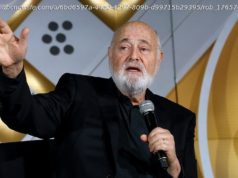Trump had grown tired of the torrent of negative stories about him and had come to believe they were a distraction that wouldn’t go away.
Scott Pruitt’s once bright political future is in doubt after his sudden fall from grace as head of the EPA, following an avalanche of revelations about his first-class flights, pricey security trappings, backdoor raises for proteges and sweetheart deals with lobbyists stretching from his Oklahoma roots to his arrival in Washington.
Some of Pruitt’s actions went viral because of bizarre details, such as using his bodyguards to search for a rare brand of lotion or tasking an aide with trying to buy a used mattress from the Trump International Hotel.
But ethics experts and Pruitt’s critics noted that the eye-popping details frequently underscored Pruitt’s apparent misuse of his Cabinet position, sometimes for simple vanity but occasionally — most consequentially — in ways that benefited himself and his family, drawing civil and potentially even criminal inquiries.
President Donald Trump said the decision to resign was Pruitt’s and that there was “no final straw” that precipitated the move, which has been in the works for a couple days.
“Scott is a terrific guy. And he came to me and he said I have such great confidence in the administration. I don’t want to be a distraction. And I think Scott felt that he was a distraction,” Trump told reporters on Air Force One Thursday, according to a pool report.
Chief of staff John Kelly had been pushing Trump for months to fire Pruitt, and he ramped up his campaign in recent days, according to one person close to the White House. The person described removing Pruitt as one of Kelly’s top priorities before leaving the administration, as he’s expected to do sometime this summer.
But Kelly’s frustration with Pruitt alone would never be enough to secure the EPA administrator’s ouster. Trump himself had begun to grow tired of the torrent of negative news stories about him and had come to believe they were a distraction that wouldn’t go away, according to an administration official.
At the White House, senior aides were increasingly convinced that Trump would soon push Pruitt out, but they didn’t know exactly when and some were caught off guard by Thursday’s announcement.
Pruitt, who believes he has a strong personal relationship with Trump, has told allies repeatedly in recent months that he wasn’t worried about his job, insisting that the president had his back.
But Pruitt nonetheless showed flashes of irritation over the wave of negative press attention that overtook him. He told aides recently that he believed the reports about him were unfair, adding that he simply didn’t understand why people were making such a big deal about his decision to enlist an aide to help his wife secure a Chick-fil-A franchise, according to another person familiar with the matter.
White House staffers had long ago given up on Pruitt, rarely coming to his defense when negative news stories dominated the headlines. Aides were sick of answering questions about the EPA chief and spoke privately about their hope that the president got rid of him. Even Pruitt’s own staff had begun to sour on him, with many worrying that their future career prospects would be damaged by their association with Pruitt’s tenure.
Each scandal seemed more damning than the last. Pruitt faced criticism last year for his extensive first-class travel on the taxpayer dime and security expenses including a $43,000 soundproof phone booth in his office. Then news this spring that Pruitt had secured a $50-a-night Capitol Hill condo lease from the wife of a lobbyist kicked off several months of damaging headlines on a nearly daily basis. His staff talked of getting him a $100,000-a-month private jet lease. Two aides who came with him from Oklahoma received massive raises Pruitt was later forced to reverse. He replaced the head of his security detail who wouldn’t let him use lights and sirens to zip around the city like the president. And a top career official was dismissed after he questioned the security justifications for Pruitt’s beefed up, multimillion-dollar protective detail. Questions were raised about why Pruitt hired a longtime friend, whose bank over the years issued Pruitt multiple mortgages and helped him buy part ownership of a baseball team, and who was recently banned from the banking industry, to run EPA’s Superfund program.
In recent weeks, former Pruitt aides told staffers on the House Oversight Committee about the administrator’s search for a high-paying job for his wife and his use of EPA time and staff for personal matters. Although nascent, the new allegations raised questions of whether Pruitt had used his position to benefit his family or himself. Committee aides tell POLITICO their investigation will continue despite Pruitt’s departure.
EPA’s inspector general opened multiple overlapping probes into Pruitt’s activities and spending. House Oversight Chairman Trey Gowdy (R-S. C.) turned heads when he launched his own investigation of Pruitt. Other inquiries are underway by the Government Accountability Office, the Oklahoma Bar Association and even the White House.
Pruitt’s controversial activities led conservatives to call for his departure.
“Pruitt is the swamp. Drain it,” Laura Ingraham, the conservative pundit known to have Trump’s ear, tweeted on Tuesday.
Democrats and environmental groups quickly claimed victory with Pruitt’s resignation.
“He made swamp creatures blush with his shameless excesses. All tolerated because President Trump liked his zealotry,” Rep. Gerry Connolly (D-Va.) said.
“Ethics matter. So does a commitment to EPA’s central mission. Scott Pruitt failed miserably on both counts,” said Rhea Suh, president of the Natural Resources Defense Council.
Within the White House, a less splashy headline also helped undermine Pruitt’s standing with Trump’s inner circle: The news, first reported in early January by POLITICO, that Pruitt was advocating quietly but firmly behind the scenes to replace Jeff Sessions as Trump’s attorney general. That ambition was a turning point that soured Pruitt to key White House aides, if not the president himself, officials said in the intervening months. Pruitt grew bolder, eventually directly asking Trump for the DOJ job, CNN reported on July 3, just two days before Pruitt resigned.
Pruitt’s troubles had been simmering for a long time as other Cabinet officials were picked off following their own scandals or tension with Trump, including HHS Secretary Tom Price, Veterans Affairs Secretary David Shulkin and Secretary of State Rex Tillerson.
His supporters noted that, unlike Price or Tillerson, Pruitt was viewed as an effective and loyal lieutenant to Trump.
“It is extremely difficult for me to cease serving you in this role first because I count it a blessing to be serving you in any capacity, but also, because of the transformative work that is occurring,” Pruitt wrote in his resignation letter to Trump.
Pruitt rose to prominence as Oklahoma’s attorney general, where he made his name suing the Obama EPA 14 times over what he called gross regulatory overreach. One of his greatest achievements was the Supreme Court’s early 2016 decision to block the Clean Power Plan, which set the first-ever carbon dioxide limits on the power sector, while a lower court reviewed the rule — the first time the justices had ever done that.
He convinced Trump that such tenacity would prove useful in fulfilling his many campaign promises to undo almost all of former President Barack Obama’s environmental agenda.
It didn’t take long after Pruitt had arrived at EPA for him to halt and reverse key regulations Trump had vowed to roll back, including the power plant rule and Obama’s Waters of the U. S. rule, which farmers and other industries decried as federal overreach.
But Pruitt went beyond the standard-issue Washington conservative environmental agenda that called for repealing those rules.
EPA is soon expected to propose a much more restricted version of the Clean Power Plan to satisfy legal requirements. But Pruitt has also kept open the option not to replace it at all, a position that most legal experts agree is untenable but which helps satisfy the right-wing groups that want EPA to stop regulating greenhouse gases altogether.






